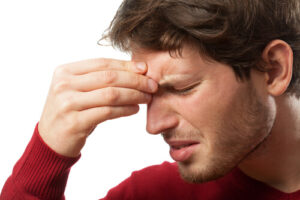
Bad Tasting Phlegm: Why You Should Be Concerned
2024-02-13Contents
Bad-tasting phlegm can be an unpleasant and bothersome experience, leaving one’s taste buds perplexed and craving relief. This article delves into the discomfort caused by this peculiar occurrence, exploring its possible causes and remedies. As we navigate the intricate pathways of our respiratory system, understanding the factors contributing to the unappealing taste of phlegm becomes essential in finding solace and restoring our sense of taste.
Let’s embark on this journey to unravel the enigma of bad-tasting phlegm and rediscover the harmony between our taste buds and well-being.
What Causes Bad Tasting Phlegm?
Bad-tasting teeth or phlegm can be an unpleasant and concerning symptom, often indicative of underlying health issues ranging from infections to chronic conditions. The causes of this distasteful symptom are varied, each contributing to the overall experience of a foul or abnormal taste in the mouth.
- Infections: Both bacterial and viral infections, such as the common cold, sinus infection, and strep throat, can lead to the production of phlegm that has a bad taste. These infections often involve sinus drainage and nasal congestion, contributing to a foul taste in the mouth.
- Blood Presence: A bloody or metallic taste in phlegm can result from the presence of red blood cells due to a minor bleed in the respiratory tract or more severe conditions like a pulmonary embolism. This taste is notably distinct and can signal the need for immediate medical attention.
- Medication Side Effects: Medications, including some antibiotics and prescription drugs, can alter taste perception or produce side effects, including a bad mouth taste. This is often due to changes in the body’s chemistry and can affect how taste buds perceive flavors.
- Oral Health Issues: Conditions like gum disease can also affect the taste of phlegm. Poor oral health leads to increased bacteria in the mouth, which can change the taste of saliva and mucus, contributing to an unpleasant taste.
- Lifestyle Factors: Smoking or exposure to cigarette smoke can significantly impact the taste of phlegm. Quitting smoking often improves the taste sensation as the body’s immune system recovers and inflammation in the throat and respiratory tract decreases.
The Connection Between Oral Health and Phlegm Taste
The connection between oral health and the taste of phlegm is a significant aspect of understanding overall well-being. Poor oral health can directly influence the flavor of phlegm, making it taste bad and vice versa. Certain conditions leading to foul-tasting phlegm can also affect the health of your nose and mouth, establishing a bidirectional relationship that impacts oral hygiene and respiratory health.
- Bacterial Growth: Oral conditions like gum disease foster an environment conducive to bacterial growth. The bacteria responsible for oral health issues can also affect the taste of phlegm, producing a foul or abnormal flavor as they mix with saliva and mucus in the mouth.
- Infection Spread: Sinus infections, often accompanied by postnasal drip, contribute to the bad taste of phlegm. As the bacterial infection causes mucus to accumulate in the nasal passages and throat, it can carry bacteria or virus particles into the mouth, further deteriorating oral health and altering taste.
- Impact of Dental Decay: Tooth decay and other dental issues can lead to an influx of bacteria in the mouth. These bacteria can change the composition and taste of phlegm, making it more unpleasant, and indicate the interconnectedness of dental health and the respiratory system.
- Dry Mouth and Dehydration: Conditions that cause dry mouth or dehydration can affect phlegm consistency and taste. Saliva is crucial in maintaining oral hygiene by neutralizing acids and washing away bacteria. A lack of saliva can make phlegm taste worse due to a higher concentration of bacteria and cellular debris.
- Lifestyle Factors: Smoking and other lifestyle factors that affect oral health can also alter the taste of phlegm. The chemical substances in cigarette smoke can contribute to gum disease and symptoms like dry mouth, which can negatively impact the taste sensation.
Dietary Influences on Phlegm Flavor

Diet plays an important role in influencing the flavor of phlegm, with certain foods and beverages having the potential to alter its taste. Understanding the dietary influences on phlegm flavor can help manage this symptom through nutritional choices, highlighting the importance of diet in overall respiratory and oral health.
- Spicy and Acidic Foods: Consumption of spicy and acidic foods can increase the production of phlegm and potentially change its taste. These foods can irritate the digestive system and respiratory tract, leading to phlegm that may taste more acidic or unpleasant.
- Dairy Products: There is a common belief that dairy products can thicken phlegm and alter its taste by increasing mucus production, although scientific evidence on this effect is mixed. Some individuals may notice a creamier texture and a slight change in the flavor of phlegm after consuming dairy.
- Hydration Levels: Adequate hydration influences the consistency and taste of phlegm. Well-hydrated individuals typically produce thinner, less noticeable phlegm. In contrast, dehydration can lead to thicker phlegm with a more pronounced taste due to concentrated mucus.
- High-Sugar Foods and Beverages: Foods and drinks high in sugar can affect the immune system and potentially increase phlegm production, which might alter its taste. Excessive sugar intake can foster bacterial growth in the mouth and throat, contributing to sweeter or more foul-tasting phlegm.
- Alcohol and Caffeine: Alcohol and caffeine intake can lead to dehydration, influencing both the amount and thickness of phlegm. This dehydration can intensify the taste of phlegm, making it more noticeable and potentially more unpleasant.
Effective Remedies to Improve the Taste of Phlegm
Addressing the unpleasant taste of phlegm involves a combination of remedies that can improve its flavor and contribute to better oral and respiratory health. Effective management strategies are crucial for alleviating discomfort and enhancing overall well-being.
- Hydration: Increasing fluid intake is a key strategy for diluting phlegm, making it less thick and potentially improving its taste. Water, herbal teas, and broths are excellent for staying hydrated and can help flush out bacteria and toxins.
- Saltwater Gargle: Gargling with salt water can help reduce phlegm production and improve its taste by clearing bacteria and soothing throat irritation. This simple remedy can be particularly effective for phlegm related to sinus infections and sore throats.
- Humidifiers: A humidifier adds moisture to the air, soothing irritated respiratory passages and helping thin out phlegm. This makes it easier to expel and can neutralize its taste by reducing the concentration of irritants and bacteria.
- Dietary Adjustments: Modifying your diet to include foods less likely to exacerbate phlegm production can also help improve its taste. Avoiding overly processed, sugary, and fatty foods while incorporating fresh fruits, vegetables, and lean proteins can support immune function and reduce phlegm viscosity.
- Quit Smoking: Smoking cessation is crucial for individuals looking to improve the taste of phlegm. Tobacco smoke irritates the respiratory system, leading to increased phlegm production and a more unpleasant flavor. Quitting smoking can significantly enhance respiratory health and the quality of phlegm produced.
When to Seek Medical Attention for Bad Tasting Phlegm



Recognizing when to seek medical attention for bad-tasting phlegm is crucial for preventing potential complications and addressing underlying health conditions. While occasional changes in taste in your mouth from the taste of phlegm can be normal, certain symptoms indicate the need for a professional evaluation to ensure appropriate treatment and care.
- Persistent or Worsening Symptoms: If the bad taste is accompanied by persistent coughing, sore throat, or sinus pain that does not improve or worsen over time, it’s important to consult a healthcare provider. These symptoms could signal an infection or other condition requiring medical intervention.
- Presence of Blood: Phlegm with a bloody or metallic taste, especially if visible blood is present, warrants immediate medical attention. This could be a sign of a more serious condition, such as a respiratory infection, pulmonary embolism, or cancer.
- Difficulty Breathing: Any experience of difficulty breathing or shortness of breath combined with bad-tasting phlegm should prompt an urgent visit to a healthcare professional or emergency room. These symptoms could indicate a severe respiratory condition needing prompt treatment.
- Fever and Chills: Fever and chills, coupled with bad-tasting phlegm, indicate a possible active infection that may necessitate antibiotics or targeted treatments. Consulting a healthcare provider is essential for diagnosing the underlying issue and deciding on the optimal treatment strategy.
- Unexplained Weight Loss: If experiencing unexplained weight loss and changes in the taste of phlegm, it’s important to seek medical evaluation. This may signal the presence of an underlying health issue that requires attention.
In conclusion, dealing with bad-tasting phlegm can be an unpleasant experience. However, understanding its causes and implementing certain lifestyle changes can help alleviate this issue. Maintaining good oral hygiene, staying hydrated, avoiding irritants, and seeking professional medical advice when necessary are crucial steps to combat the problem effectively. Remember, being proactive and consistent can improve overall health and well-being. With these strategies in place, you can minimize other symptoms of bad-tasting phlegm and enjoy a better quality of life.
References
Metallic Taste When Coughing: Causes, How to Treat It & More
https://www.healthline.com/health/metallic-taste-when-coughing
Foul-smelling Cough: Symptoms & Causes
https://www.buoyhealth.com/learn/foulsmelling-cough
Bad Taste In Mouth, Thick Saliva Or Mucus And Unusual Taste In Mouth
https://www.medicinenet.com/bad_taste_in_mouth_and_thick_saliva/multisymptoms.htm
Taste of Blood and Metal When Coughing: Causes
https://www.verywellhealth.com/taste-blood-when-i-cough-7643429
Metallic taste when coughing: Causes and symptoms
https://www.medicalnewstoday.com/articles/metalllic-taste-when-coughing

